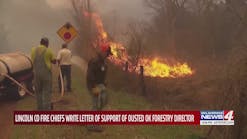The week's visit comes to you a couple of weeks after the end of my annual soiree to the world of circus music. As I said to my buddies in Adelphia before I left, I was running away to join the circus. Once again my friends I have had the privilege of traveling south in order to return to the circus music days of yesteryear. It was really great fun for me to once again be allowed the privilege of enjoying the music of a bygone era. Our group plays music not often seen in the libraries of community bands in the United States and Canada.
My annual trip to the Windjammers Unlimited, Inc. Annual Meeting in Sarasota, Florida was all that I hoped it would be. Although the there was one piece of music from the 1970's, most of it came from the glory days of the circus world, a period running from the 1870's through the 1920's.
More than the mere enjoyment of music, I got to help a buddy enjoy the merriment of our band of old-time music buffs. Since I am the proud owner of a nice, new, large-sized G.M.C. Yukon XL S.U.V., I was able to bring along an extra tuba for my buddy Jerry Deutscher. Jerry is a pretty neat guy. He is a World War II Marine Corps veteran who was born and bred in Brooklyn. We just hit it off a few years back when we met for the first time in Sarasota.
He mentioned to me two years ago when he moved to Arizona that he probably would not be coming any more since it was such a pain in the butt to get his tuba on the plane. I offered to bring my spare horn along for him to play. This allowed him to make it in from Tuscan, Arizona without having to lug a tuba onto an airplane. As you might imagine, this can be a real drudge. I made the same offer again this year.
I guess that is what means to be a team member. It seems to me that sharing and caring is what being part of a team is all about. When a buddy needs help you give it to them. Perhaps this is one of the elements which seem to turn up missing in far too many fire organizations today. The new-generation of "what's-in-it-for-me warriors" fail to recognize that this is one of the critical elements so necessary to organizational growth and success.
As I have in each of the past two years, I come to you with a number of observations and lessons which came to me during my time with the Windjammer's Unlimited, Inc. band as well as my time with the Sailor Circus in Sarasota. These things just come to me at odd moments and in a variety of different places.
Lesson one from this years trip to the circus is simple. Being a member of a team means that you should offer to help other members of the team when they need ask for it. And sometimes you need to offer your help when you think it is needed. Jerry needed some help and I was able to help him.
During our week in Sarasota, I was assigned to the Blue Band for rehearsal and recording purposes. There were also Red and White Bands to allow for wide participation among attendees. Of course we in the Blue Band felt we were the best of the three performance and recording groups. This arrangement allowed us all to play a boatload of music, as well as prepare well for our big, center-ring concert at the Police Athletic League's Sailor Circus facility.
Running any meeting such as this can be a read pain. Having done it a number of times on a smaller scale myself, I am well aware that hosting and conducting a conference of any kind is a difficult proposition. Planning and logistics concerns always lie at the heart of any such undertaking. Therefore it is critical to ensure that the details of such an undertaking are handled by responsible, detail-oriented people.
The balancing of duties must be done in such a way that things seem to occur seamlessly, regardless of the amount of labor involved. Since our group has a number of older members, we do lose people from time to time. We have been fortunate to have some really capable people step into the breech to keep the organization moving forward.
My second lesson this year is somewhat mundane, but involves matters which are frequently overlooked in the fire service. We need to make planning and logistics a greater priority within our organizations. We have to stop leaving things to chance. That type of haphazard behavior rarely works.
For most of my fire service career, logistics was considered to be something which was done by the "other person." The same was true with planning. No one wanted to go to the planning division or the special service and supply division. Yet without a plan and resources to accomplish that plan, little of any good can come about within a fire department.
Let me take just one aspect of the logistics operation as an example of the hard work involved in making the Windjammer's meets a success. What good is a band without music? Then imagine how difficult it must be assembling the necessary music for a band conference. Let me share another critical logistical matter with you; people. The Windjammer's had more than two hundred and twenty musicians in attendance at the Sarasota Hotel and Marina. Each person needed music. Our individual performance packages included 60 different pieces of music for each player.
Fortunately for our group, much of the music we perform is so old that it is well out of copyright protection. The makes the creation of a performance library somewhat easier. We do not need permission to reproduce the music and neither are we required to pay royalties to the composers. However, the music we use must still be found and reproduced in sufficient quantities for our band.
This is the responsibility of Don Albright, the Assistant Director of the Famous Allentown Band; the oldest community band in America. I have been told on good authority that his home looks like a branch office for Fed-Ex/Kinko's. In order to hold down the expenses and make the task a bit easier, not every musician gets their own set of music, which we call a "deck". For example, there will be two flutes or two trumpets playing off of one deck and so it goes for all of the normal instruments in the band. Every organization needs hard-working, dedicated people to make things work. I should also point out that there would be nothing for Don to reproduce were it not for the hard work of our band librarian Doug McLeod. He selects the pieces we will play and forwards them to Don.
By the way, guess who gets their own personal decks? That would be the members of the most important part of the band. That would, of course, be the tuba section my friends. Our instruments are just too big and un-wieldy to allow us to sit closely together. For the record we had eighteen tuba players in attendance at this year's meet.
Beyond the logistics of providing the music you have the problems of ensuring that each player has a sufficient amount of playing time. That can be tough. However the people running the show did a yeoman service in scheduling plenty of opportunities to play. One day our band played in the afternoon, and on another we played in the morning. However, my favorite day was Friday where we played not only in the morning and afternoon sessions we also had a two hour center-ring band rehearsal session with a total of 158 musicians.
People played well together, even though many grew tired as our week went on. We also had a number of communal meals which had to be planned, arranged, and paid for. It is difficult to believe that in this day and age the total for of the extras was only $60. Our host for the week was Mike Montgomery and his skill at making this all come together is truly astounding. The front end work of planning and preparing paid off well. Fortunately his wife Nada pitched in to lighten the load. This is yet another example of teamwork my friends.
All of these things led up to the Sunday afternoon performances at the Sailor Circus facility near Sarasota High School. We presented a one-hour, ten-selection center-ring circus band concert. The hard work in the various rehearsal bands paid off. It is extremely difficult for the conductor of a large musical ensemble, such as our 158-member group, to keep everyone marching to the same beat. The attention to detail which our conductors displayed led to the best show I have seen in my years as a Windjammer.
There is the next lesson my friends. Once you have your plan in place and possess the necessary resources for the task at hand, practice the plan so that it becomes internalized within each member of the team. How many times have you heard the old saying that practice makes perfect? Let me tell you that this saying is not really correct.
My music teacher taught me a long time ago that it was only perfect practice which leads to perfection in a performance. I know there are some people in New England who wish that they had spent a bit more time practicing how to raise an extension ladder. Their performance in a recent video which is making its way around the Internet showed me that they are a long way from perfection.
Only the Lord himself knows how many people have seen the video of that pathetic attempt at raising a ladder. It should become a drill school staple in years to come. Let me offer those troops some extremely simple, but sage advice. The end of the ladder with the pointy devices is called the butt of the ladder. That end goes down when trying to trying to raise up the other end, known to many among us as the "tip" of the ladder. Oh, and by the way, remember to have someone foot (or steady) the bottom of the ladder. Those silly little aluminum things have a habit of slipping from time to time.
My last lesson this time around actually comes from the performance of the young people in the Sailor Circus. The first act of the day was a young lady working on the Roman Rings device. The very first thing that person did was hook up to the safety device which insured that even if she slipped off the rings she would not fall and strike the floor underneath them.
How is it that the circus can train a young person to wear there safety devices, but we as a fire service cannot get people to strap on their seatbelts? Heck we even have places in our nation where the fire service is granted an exemption by law from wearing their seatbelts. Now there is a dumb-ass ruling if ever I saw one.
Not long after the Roman Rings performance a group of daredevils took to the flying trapeze. Here were four high school students climbing more than thirty feet up into the rigging to show us their stuff. While many in the audience saw a great circus performance, I saw more than that. I was witness to a precision demonstration of teamwork and trust among the young performers. I can only imagine how many hours of practice it took to hone their skills.
The part that really amazed me was the point at which the young ladies swaying back and forth so gracefully let go of their trapeze bar and reached out for the hands of the young man who served as their high-flying catcher. Talk about trust. How much trust does it take to let go of a sure thing and reach out through thin air trusting that your fellow team member will be there for you?
Again I must emphasize the constant drilling in which these young performers willingly participate. However, let me not fail to mention the safety aspect of this performance. These young people had a safety net under them. More than that, there were five spotters positioned around the net for the four flyers. Their eyes were riveted to the troops who were aloft. The safety measures paid off when one of the flyers missed the catcher and dropped safely into the net. The young lady bounced off the net, grabbed the rope ladder and climbed back up to the performance platform above. Safety and practice paid off for these fine young folks in Florida.
How many of your fire departments operate without a safety net? I would bet that there are more departments out there doing unsafe things than any of us would like to believe. I would be willing to bet a few bucks on that one. During the week in Florida, I happened to receive and review a NIOSH Firefighter Fatality Report about an individual who died under a collapsed garage canopy. The report stressed that there were insufficient people available, as per the appropriate National Fire Protection Association (NFPA) standard.
Far too many fire departments are operating without a safety net because their communities refuse to provide the financial resources for a properly-staffed fire department. Billy G and I have been whacking people over the head about this one for a long time now. I took my first turn at bat on this issue back at the NFPA meeting in New Orleans back in 1992.
It has been an important battle to me my friends. I have kept writing and lecturing on this topic since that time. It took awhile, but we in the service finally got the standards written on this critical topic a few years back. But now the problem involves getting people to adopt and fund the right staffing levels.
We keep working and battling, but in far too many cases my friends the results are less than satisfactory. My associates and I keep finding ourselves in situations where we who are doing the fighting end up getting drenched by the wind-blown products of the human urinary system. Then the bean-counting wienie city managers, politicians, and sell-out fire chiefs have the gall to tell us all that it is actually raining.
The lessons which I have brought to you from this years visit to the circus can have an impact upon your operations, but you must choose to use them. Here they are again:
- Teamwork
- Planning
- Logistics
- An emphasis on safety
- Perseverance
Will I stop battling for what I believe is right and proper? Hell no! I cannot speak for others, but I want you to know that I am in this for the long hall. Sometimes it feels as thought I am working without a net, but since my feet rarely leave the ground I should be OK. Why not join me. I sure could use your help.





